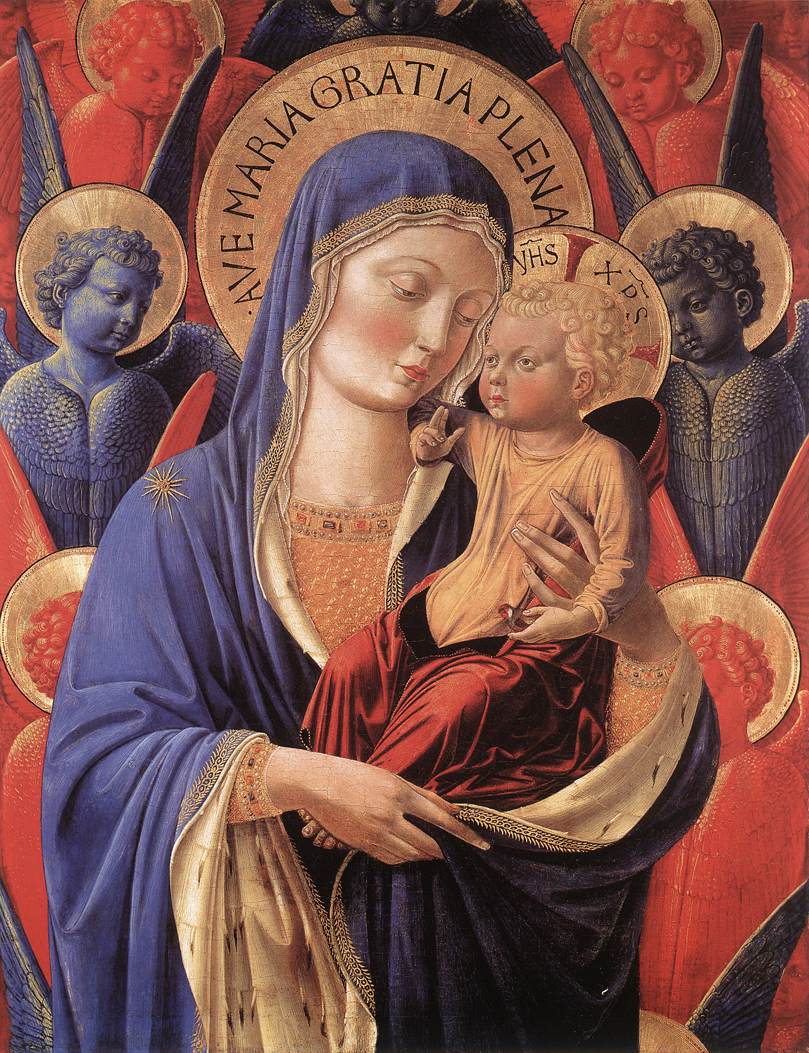We know that the Holy Rosary holds the first place among all the prayers which the Church recommends to the faithful. This excellent prayer, the source of so many graces for the living, is also singularly efficacious in relieving the dead. Of this we have a touching proof in the Life of Father Nieremberg, whom we have mentioned elsewhere. This charitable servant of God imposed upon himself frequent mortifications, accompanied by devotions and prayers for the relief of the poor suffering souls. He never omitted to recite the Rosary each day for their intention, and gained for them all the indulgences in his power; an offering which he recommended to the faithful in a special work which he published on this subject. The chaplet which he used was ornamented with pious medals and enriched with numerous indulgences. It happened one day that he lost it, and he was inconsolable; not that this holy Religious, whose heart was not fettered by anything upon earth, had any material attachment to these beads, but because he saw himself deprived of the means of procuring the relief he was accustomed to give to the poor souls. He sought everywhere, tried to recollect where he could have put his precious treasure: all was useless, and when evening came, he found him self obliged to replace his indulgenced chaplet by ordinary prayers.
Whilst thus engaged and alone in his cell, he heard a noise in the ceiling like that of his beads, which was well known to him, and raising his eyes, he saw in reality his chaplet, held by invisible hands, descending towards him and fall at his feet. He did not doubt that the invisible hands were those of the souls who were relieved by this means. We can imagine with what renewed fervor he recited his accustomed five decades, and how much this wonder encouraged him to persevere in a practice so visibly approved by Heaven.
Venerable Mother Frances of the Blessed Sacrament had from her infancy the greatest devotion towards the suffering souls, and persevered therein as long as she lived. She was all heart, all devotion towards those poor and holy souls. To assist them she daily recited her Rosary, which she was accustomed to call her almoner, and she ended each decade with the Requiescant in pace. On feast days, when she had more free time, she added the Office of the Dead. To prayer she joined penances. The greater part of the year she fasted on bread and water, and on vigils she practiced other austerities. She had to endure much labor and fatigue, pain and persecution. All these works were turned into profit for the holy souls, Frances offering all to God for their relief.
Not content with assisting them herself as far as was in her power, she engaged others to do the same. If priests came to the convent, she begged for Masses for them; if they were laymen, she advised them to distribute abundant alms for the faithful departed. In recompense for her charity, God frequently permitted the souls to visit her, either to solicit her suffrages or to return her thanks. Witnesses have testified that several times they visibly waited for her at the door when she was going to the Office of Matins, that they might recommend themselves to her prayers. At other times they entered her cell in order to present their request to her; they surrounded her bed, waiting until she awoke. These apparitions, to which she was accustomed, caused her no fear, and that she might not think herself the sport of a dream or a dupe of the devil, they said on entering, “Hail, servant of God, spouse of the Lord! may Jesus Christ be ever with you!” Then they testified their veneration for a large cross and the relics of the saints which their benefactress kept in her cell. If they found her reciting the Rosary, add the same witnesses, they took her hands and kissed them lovingly, as the instrument of their deliverance.
This article is taken from a chapter in Purgatory Explained by the Lives and Legends of the Saints by Father F.X. Schouppe, S.J., which is available from TAN Books.







